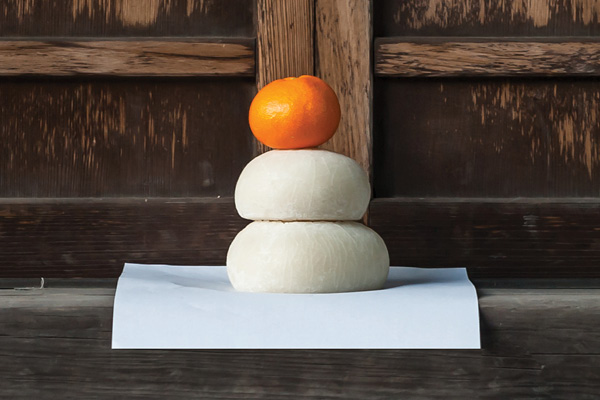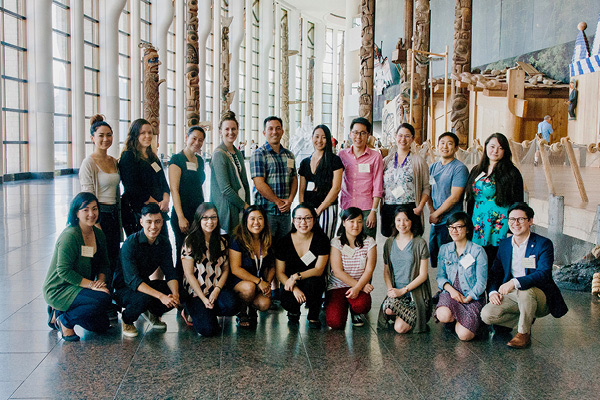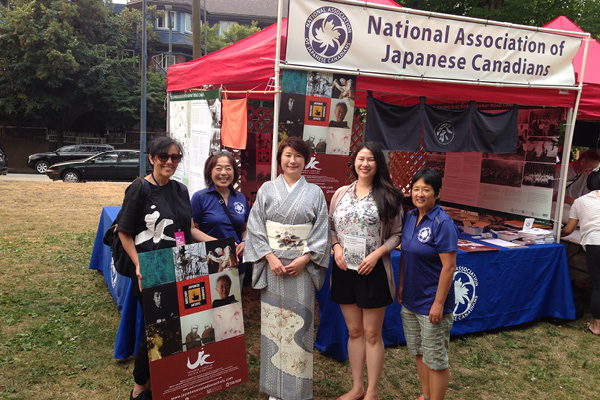There are 9 members of the NAJC National Honorary Advisory Council. This month we profile: Maryka Omatsu, Mary Kitagawa and Tosh Kitagawa.
You can view the profiles of all nine members of the NAJC National Honorary Advisory Council at najc.ca/najc-national-honorary-advisory-council/
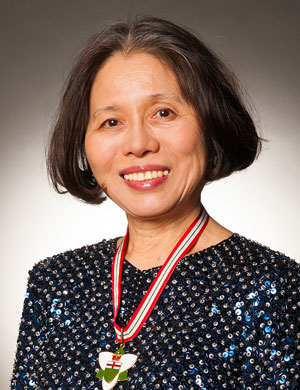 The Honorable Justice Maryka Omatsu M.A., LL.B
The Honorable Justice Maryka Omatsu M.A., LL.B
Appointed in Feb. 2003, Judge Maryka Omatsu is Canada’s first female judge of East Asian ancestry. She sat in criminal court in downtown Toronto and also presided in the therapeutic courts in the areas of: Domestic Violence, First Nations, Mental Health and Drug Treatment. Judge Omatsu established a dispute resolution court for consenting persons who have ongoing relations. Nation-wide she was co-chair of the National Judge’s Association on Equality and Diversity, co-editing the Judge’s Handbook on Equality & Diversity (2007). For seven years (2000-2007), she was a Toronto representative of the Ontario Judge’s Association, negotiating successfully for sabbaticals and a less discriminatory pension. She retired in 2013 but continues to sit part time in Toronto.
In 2006, Judge Omatsu was a co-founder of the Federation of Asian Canadian Lawyers (FACL). Today, FACL represents over 1,500 Asian Canadian lawyers across the country, speaking for equality, diversity and justice on behalf of their communities.
Before her appointment, Judge Omatsu practised law in Toronto for 16 years working in criminal, human rights, and environmental law, at times representing Aboriginal peoples. During those years, she also worked for all 3 levels of Government, taught in Lanzhou, China and Ryerson University in Toronto and lectured in Tokyo and Kyoto, Japan. She was the first Chair of the Ontario Human Rights Appeals Tribunal, a referee for the Law Society of Upper Canada on client disputes and a member of the Ontario Government’s Fair Tax Commission, on women’s issues.
During the 1980’s Judge Omatsu was a member of the National Association of Japanese Canadians’ strategy and negotiation teams. She helped her community win a hard fought victory for their denial of civil rights, World War II incarcerations in British Columbia prison camps, loss of property and the 1947 deportations to Japan. In 1988, pursuant to the negotiated settlement, the Canadian Government apologized to the Japanese Canadian community, established a community fund and the Race Relations Foundation to combat racism, and awarded compensation of $21,000.00 to affected individuals. This award of over $400 Million was at the time, the largest human rights award in Canada’s history and stands as a deterrent to protect other vulnerable minorities.
In 1992, Judge Omatsu wrote Bittersweet Passage: Redress and the Japanese Canadian Experience, which documented her community’s history in Canada. The Book won the Prime Minister’s Award for Publishing and the Laura Jamieson Prize for the “best feminist book” in 1992. Bittersweet Passage was translated into Japanese and published in Japan in 1994.
During Judge Omatsu’s career she has been awarded: the Order of Ontario (2015), the National Asian Pacific American Bar Associations’s (representing over 50,000 Asian American lawyers) highest honour, Trail Blazer Award (2013), the FACL Life Time Achievement Award (2010), an inductee to (her high school) Delta SS. Wall of Excellence (2008), the Queen’s Golden Jubilee Medal (2002), the William Timbers Lecturer, Dartmouth College (2002), the Lansdowne Lecturer, Victoria University, British Columbia (1995); the Canada Council, Ontario Arts Council and Toronto Arts Council grants to publish her book; the Department of External Affairs grants to travel to Japan to publicize her book and to give lectures (1994, 1997).
Her extensive and outstanding achievements and contributions in Canada and the Japanese Canadian communities substantiate the decision the National Executive Board (NEB) of the National Association of Japanese Canadians (NAJC) made to select Judge Omatsu as a member of the National Honorary Advisory Council.
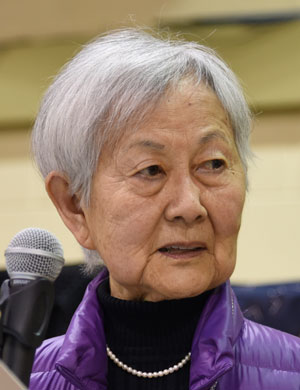 Mary Kitagawa
Mary Kitagawa
Mary Kitagawa was born on Salt Spring Island where she lived until the uprooting. After her father’s arrest, her mother and the five children were sent to Hastings Park, Greenwood, Magrath, Alberta, Popoff, Bay Farm, Slocan, Rosebery, New Denver, Magrath and Cardston, Alberta. She graduated from Cardston High and went on to Trinity College, University of Toronto. At UBC, she received her secondary teaching credential and taught at Kitsilano Secondary School.
She and her husband Tosh belonged to the Greater Vancouver JCCA Human Rights Committee for 23 years. In 2006, they were involved in the renaming of the Howard Charles Green building to Douglas Jung building in Vancouver. In 2008, they began lobbying for UBC to give honorary degrees to the 76 Japanese Canadian students who were expelled from UBC in 1942. Success was achieved in 2012 when UBC held a special congregation for those students, digitized historical documents and created a new minor course in the Faculty of Arts called the Asian Canadian and Asian Migration program.
Mary is on the Community Council in the Landscapes of Injustice project at the University of Victoria.
Mary and Tosh continue to educate the public by speaking out about Japanese Canadian history and social justice.
Mary’s rich history and her tireless commitment to address social justice defined the basis to select Mary Kitagawa as a member of the NAJC National Honorary Advisory Council. In 2013, Mary was also the recipient of the NAJC Leadership Award for the contributions she has made in the Japanese Canadian communities.
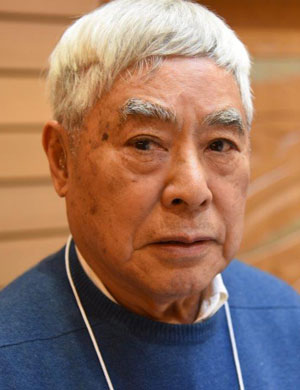 Tosh Kitagawa
Tosh Kitagawa
Tosh Kitagawa was born in Mission, BC. In 1942, he and his family were incarcerated in the beet fields in Diamond City, Alberta. He graduated from Lethbridge High School and later worked in business. After moving to Vancouver, he became involved with the Japanese Canadian community during our fight for redress. He belonged to the GVJCCA Human Rights Committee for 23 years. Each year at the Powell Street Festival he and his wife Mary raised funds for the committee by selling greenhouse vegetables.
He represents the Japanese Canadian community on the Community Council in the Landscapes of Injustice project at University of Victoria that is collecting data and stories of the resources lost by the internment of Japanese Canadians in World War II. Tosh was an equal partner with Mary in successfully getting honorary degrees for the 76 UBC Japanese Canadian students who were expelled in 1942.
Tosh became the NAJC Vice President and Chair of the Human Rights Committee for one term that organized the Elders Summit with various partners at UBC. Since 2016, Tosh serves as a Special Advisor to the NAJC where he continues to provide resources and support for fund-raising and advocate for a new project to establish a Memorial Wall in Vancouver commemorating the 22,000 incarcerated Japanese Canadians during World War II.
Also a recipient of the NAJC Leadership Award in 2013 along with his wife, Mary, Tosh is instrumental in being a strong voice of human rights and leadership to remember the Japanese Canadian history and presence in Canada. Tosh was co-editor of the book, “Silence ……” just published in 2016.
His unwavering dedication to the Japanese Canadian community and his involvement on the National Executive Board of the NAJC are milestones of his achievements that the NEB has selected Tosh Kitagawa as a member of the National Honorary Advisory Council.

